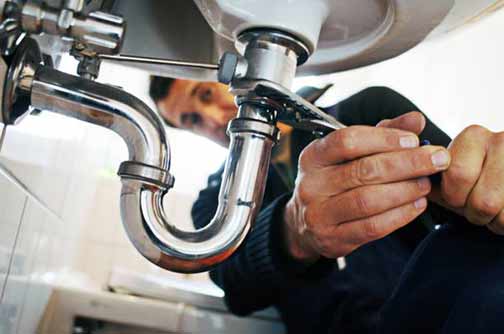An inefficient plumbing system is one in which there is an endless stream of problems. These problems prevent the use and full enjoyment of the system. Maintaining an inefficient plumbing system will cost you more because the problems in the system often tend to be very damaging, warns Specialized Property Management Indianapolis.
Inefficient plumbing systems also decline faster, forcing homeowners to replace the system before they are ready. The result of having such a plumbing system in your home is that there is always a risk of something major going wrong with your plumbing.
Additionally, you deal with ever-increasing plumbing maintenance costs in return for rapidly worsening service from your plumbing system. Furthermore, the problems in your plumbing can spill over and damage the other structures and systems of your building.
As a budget-conscious homeowner in Chicago, how can you prevent unnecessarily spending on your home’s plumbing this summer? What will you do to minimize your plumbing maintenance costs and maximize performance simultaneously?
Tips to maximize plumbing efficiency in your Chicago home this summer
Summer is the season for barbecues, family gatherings and outdoor fun. During this period, your home’s plumbing will see increased use, and that extra burden can worsen existing problems in the system.
To protect your family, friends and wallet from the consequences of avoidable plumbing emergencies this summer, here is a list of things you can do to improve the function of your plumbing.
Check for leaks
Even the smallest leak can have a major impact on the performance of your plumbing. The worst leaks are those that you do not know of their existence. That is because the leaking pipe is inside an inaccessible part of your home. A second type of leak to look out for is those we overlook, such as dripping faucets and running toilets.
Clean and unclog your drains
Drain clogs are also a common problem in plumbing systems. Clogged drains cause issues in the home. They affect indoor air quality, encourage mold growth, and can even cause sewage backup. That is along with the inconvenience of having to deal with slow drains. To fix your drain issues, do not use chemical drain cleaners; call a professional plumber in Chicago.
Clear the gutters and downspouts
If gutters are clogged with debris, they can redirect rainwater into your roof. Downspouts that are blocked or positioned wrongly can drain water into the base of your building, thus damaging the foundation. To prevent these problems, inspect the gutters and downspouts for damage and remove any debris inside them. Make sure downspouts are discharging into the right place on the property.
Check your water pressure
Water pressure issues are not just a problem. They are a sign of other problems in your plumbing system. Low water pressure often means there is a leak in your water pipes. Low water pressure is also caused by pipe corrosion. Low water pressure will impair your enjoyment of the home’s plumbing fixtures. High water pressure, on the other hand, will damage your appliances.
Check the sprinkler systems
Summer is when your sprinkler system is used most intensively because your lawn and gardens need more water during this season. If there are leaks and other problems in your sprinkler system, they will have a bigger impact on your finances. Check the sprinkler system to ensure there are no damaged or rusted sections.
Keep an eye on your washer
More people in your home during summer means more work for your washing machine. Kids’ clothes will be dirtier because they will be playing outdoors more often. Family gatherings also increase the number of people who use the appliance. Before the full-onset of summer is the best time to check the washing machine and its connections for leaks and other problems.
Drain your water heater
Whether you will be using the water heater more or less during summer, it is a good idea to flush it. Water heaters accumulate debris and sediment as water passes through them. With the increased water usage in your home, the sedimentation rate inside the water heater will be higher. Draining your water heater helps you avoid problems from disrupting your fun during this season.
Test your sump pump
Finally, you want to be sure that your sump is fully ready to handle the excess water flowing into your basement during this period. Testing the sump pump will let you discover issues that can result in basement flooding due to sump pump failure. If your home doesn’t have a backup sump pump system, this is the time to think about installing one.
Finally, to double check that there are no problems in your plumbing system, you may want to hire a professional plumber for a comprehensive inspection.
